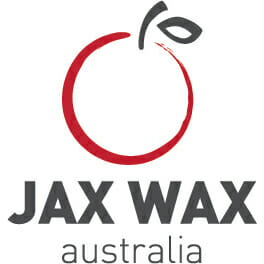By Tina Copland – Owner / Director Jax Wax

This is a subject that creates a lot of questions and causes me a great deal of concern as unfortunately there are many unscrupulous companies who like to label their products as natural or organic when in all actuality this is just not possible – unless you look at a product like a sugar “wax” which has its own set of application issues.
At Jax Wax we make different types of wax depending on our clients preferences and also depending on where we ship to, especially for climatic conditions.
We prefer to make our waxes out of synthetic rather than natural resins. All waxes are formulated with around 70 – 80% resin; there is actually very little wax in a depilatory wax. Personally, my preference is to use a synthetic resin because they are a cleaner product that is very consistent from batch to batch and they are also less likely to cause any allergic reactions. In the case of disposable gloves consider latex, which is a natural product compared to vinyl, a synthetic. More people are allergic to latex than vinyl although most people would say that they prefer to use a natural product. Any depilatory product that is clear, white or very pale is more than likely to have been manufactured using a synthetic resin.
We do use pine rosin to make some of our waxes although this must be chemically treated to make it stable enough to use in a depilatory – if this is not done then the wax will crystallise in the heater and will not remove easily from skin – it would have to be picked off. As the pine rosin is a naturally sourced product – from Chinese gum or pine trees the consistency and quality varies from season to season, time of harvest and where it is harvested from. In Australia most of the pine resin used is sourced out of China and in Europe it is mostly from Spain or Portugal.
Regardless of the rosin or resin used there also must be a wax component – this can be either beeswax or microcrystalline (micro) wax and in both cases paraffin wax needs to be added. These products are used to add flexibility and strength to the wax. We prefer to use micro wax rather than beeswax as all our products are certified by PETA as Vegan friendly. Also, micro wax is (like resin) consistent from batch to batch whereas beeswax varies with the season, what the bees are feeding on, time of year etc. The colour can also vary from a very pale yellow through to dark brown – unless cosmetic “beeswax” is used, which is a synthetic product manufactured using petroleum sources. Finally, there are additives which are used for aesthetic purposes and to assist with performance – quick drying, less pain, more flexibility, pleasant scent etc.
Is paraffin bad for you?
How long is a piece of string – if you read enough on the internet then we will all probably die from something horrible if we use it. If you look at scientific papers then it is a perfectly harmless product that has been in use for over a 100 years. Paraffin is a component of many food, drug and cosmetic products. It is used to coat fruit and medicines – paraffin is actually sourced as “food safe” paraffin.
The ingredients that we use in all our products are approved for use in the European Union and in the state of California which has some of the most onerous laws on the planet regarding what can be used in cosmetic products. None of the raw materials we use are subject to the 1986 California Proposition 65 – this is the warning that must go on labels stating that certain ingredients are known to the State of California to cause birth defects, cancer etc.
I would suggest that any product that you consider using make sure to read the ingredient list – by law all the ingredients on any cosmetic products should be listed using an International Nomenclature of Cosmetic Ingredients (INCI) name – if you look up what these are you should be able to see easily how natural or not they are. If they are not listed, then that is a company to be wary of – if not why not would be a question to ask. I also like to see that a claim made on the front of a label – e.g. contains vitamin C – this is listed as an ingredient on the back. Customers would be amazed how often the claims on the front are not reflected in the ingredient list on the back. Unfortunately it’s very sad that not all manufacturers are honest. This is especially true of organic products. Jax Wax do manufacture some lotions that contain certified organic ingredients however this does not mean that I would claim that the whole product is organic – it is not and this is clearly stated on the label.
While it would be very nice if every product that we used was natural the reality is that very few products that we use on our skin, wear on our bodies, use to clean our homes or eat are. If we want to avoid animal products, then the list that is natural diminishes further.
We are not prepared to tell you a great deal of rubbish to get your business – we pride ourselves on being an ethical company and although we may not get business because of it we always tell our customers the facts – not just some marketing hype that they would like to hear.
